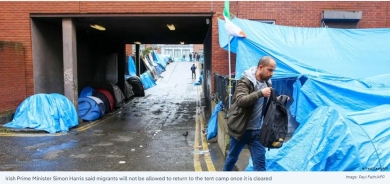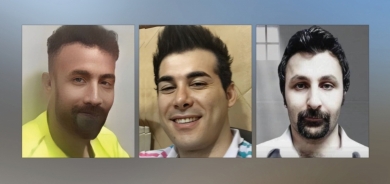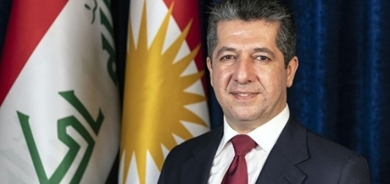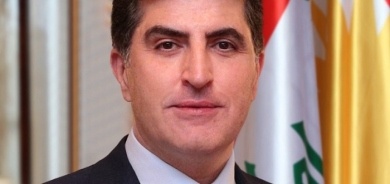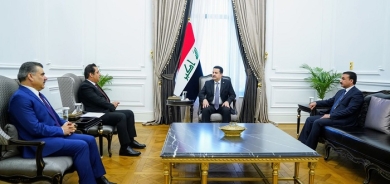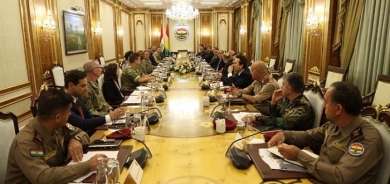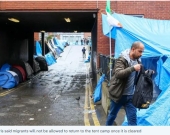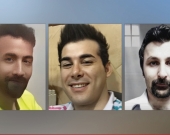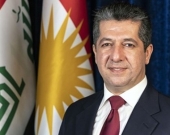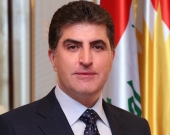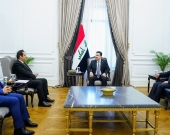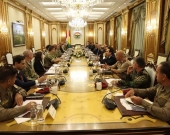Kirkuk Security Trench Stirs Up New Controversy in Troubled Iraq
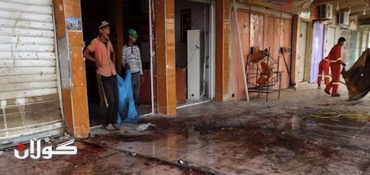
Two months ago Kirkuk’s Provincial Council decided in a majority vote to dig a 58-kilometer security trench around the city, in a controversial decision to control entrance into the oil-rich and violence-wracked area which is at the center of a dispute between Iraq’s different ethnic and religious groups.
This plan would leave the city with four main entrances, which are to be monitored by surveillance cameras. The trench itself is to be reinforced with barbed wire and regular police patrols.
Hassan Turhan, a Turkmen official in Kirkuk’s provincial council, first proposed a security trench in 2012. But Kirkuk officials only put the plan into action this year, particularly after a series of deadly bombings that killed dozens and wounded hundreds.
Kirkuk escaped most of the bloodshed and sectarian violence that ripped across Iraq in 2005-2008, but the city is no stranger to deadly car bombings and suicide attacks. According to police statistics, last year more than 237 people were killed and 910 injured by 61 car bombs, 195 roadside explosions and other violent acts.
The latest bombing happened on Friday night, when more than 40 people were killed and dozens more injured by a suicide bomber at a nighttime game center. Most of the victims were juveniles spending the night playing games after a long day of fasting for Ramadan, when Muslims fast from dawn to dusk.
But the security trench has been a matter of controversy among the city’s various ethnic groups. The Kurds and Turkmens support the plan, but the Arab Council of Kirkuk are suspicious and see it as a plot to cut off the Arab areas from the provincial capital. They also believe it is a Kurdish scheme to slice off Kirkuk from Iraq and attach it to the autonomous Kurdistan Region in the north.
The project has also caused opposition in Baghdad. The Sulaimani-based Hawlati newspaper reported that after the decision by the Kirkuk Provincial Council to allocate 3.5 billion Iraqi dinars ($30 million) for the trench, officials in Baghdad had expressed their dismay, saying the project was an attempt by the Kurds to further strengthen their grip on Kirkuk.
Soon after the project kicked off, the 12th division of the Iraqi army blocked diggers from accessing the trench, under the pretext they had not received any official orders to allow the works.
Also last month, Major General Halo Nejat, a senior security official in Kirkuk, stated that the Iraqi army had hindered work on the trench. In response, Kirkuk governor Najmaldin Karim sent the police and Kurdish security forces to clear any obstacles hindering the project.
In an interview with Rudaw earlier this month, Karim said that the city has already seen a decline in violence since the trench project started.
“Digging the trench has made a huge difference,” he said. “I am sure the security situation will be much better after its completion.”
Kirkuk is at the heart of a stretch of Iraq’s disputed territories claimed by the autonomous Kurds in the north and the Iraqi central government. The Iraqi constitution stipulates that only the people of Kirkuk can decide through a referendum whether the province should be attached to the Kurdish regions or remain under central government control.
Also, an official order from Iraqi Prime Minister Nuri al-Maliki, demanding the immediate suspension of the trench project, was rejected outright by Kirkuk officials.
“The construction of the trench will continue and we don’t need authorization from anyone,” Karim said, in defiance to Maliki’s order.
In this battle, the governor of Kirkuk does not seem to be alone. He has the full backing of the Kurdistan Regional Government (KRG).
A look at Kirkuk’s topography may offer a convicting reason that the two-meter deep and three-meter wide trench could prevent the infiltration of bombers into the city. However, it is no protection in the face of rockets that could be fired from nearby fields.
The Kirkuk trench seems to have been inspired by a similar trench that was dug around the Kurdistan capital of Erbil in 2005, after a deadly suicide bombing that killed 60 people. Since then, Erbil has been the safest city in Iraq.
Besides security for its residents, a safe and stable oil-rich Kirkuk can attract more foreign and local investments.
RUDAW

